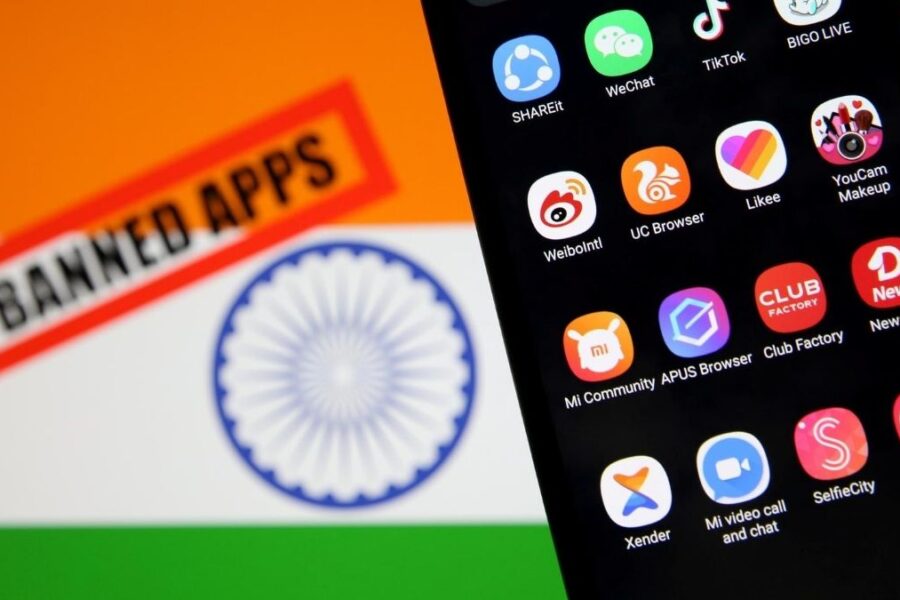Section 69A of the Information Technology Act empowers the government to issue directives for blocking public access to certain information through computer resources.
(1) If the Central Government or any authorized officer deems it necessary in the interest of India’s sovereignty, integrity, defense, national security, foreign relations, public order, or the prevention of certain offenses, they may, by written order, instruct a government agency or intermediary to block public access to specific information that is generated, transmitted, received, stored, or hosted on a computer resource. This order must be based on recorded reasons.
(2) The process and safeguards for blocking public access to such information will be as prescribed by the relevant regulations.
(3) If an intermediary fails to comply with the directive issued under subsection (1), they may be subjected to imprisonment for up to seven years and may also be fined.
The government banned the 230 plus Chinese application in amid of security
- The Indian government has taken immediate and emergency steps to ban some 230 Chinese applications in response to a crackdown on loan-lending apps. Among them, 94 loan lending applications and 138 betting apps have been ordered to be prohibited. Following a suggestion from the Ministry of Home Affairs, the Ministry of Electronics and Information Technology (MeitY) took the initiative with this step.
- The authorities started to investigate these Chinese applications after learning that they could have access to the private information of Indian individuals. The decision to prohibit these applications is supported by Section 69 of the IT Act since it was determined that the apps included material that endangered India’s sovereignty and integrity.
- According to reports, Chinese nationals who recruited Indians to act as fictitious directors in their businesses constructed the applications.
- These applications persuaded desperate people to take up loans and then charged them excessive interest rates that may reach 3,000 percent yearly. Representatives of these applications harassed borrowers by sending inappropriate messages, threatening to expose doctored images, and even getting in touch with their friends when they were unable to pay the interest.
- After several suicides by people who had either taken out such loans or lost money through betting apps, mainly in Andhra Pradesh and Telangana, this topic received a lot of attention. The Union Home Ministry had received requests from several states and intelligence organizations to take action against these applications.
- 94 of these applications, according to the government, are accessible through third-party connections, while the remaining apps may be found on app stores. Despite the fact that many smart phone applications are no longer available for download, it has been seen that gambling apps and games are still downloaded via unaffiliated links or websites.
- The government has responded by issuing a warning, noting that betting and gambling are prohibited in much of the nation. Therefore, under the requirements of the Consumer Protection Act 2019, Cable TV Network Regulation Act 1995, and the IT Rules, 2021, ads for these betting platforms and their substitutes are likewise regarded as unlawful.
- This decision is consistent with other restrictions imposed on over 250 Chinese applications for violating India’s sovereignty, integrity, defense, security, and public order. Due to worries about data privacy and unlawful use of collected data, a number of apps, including TikTok, Xender, PUBG Mobile, Shein, Cam scanner, and Garena Free Fire, have been blocked. The Information Technology Act’s Section 69A was used to enforce these prohibitions.
Bhavesh Jangra – legal Intern

